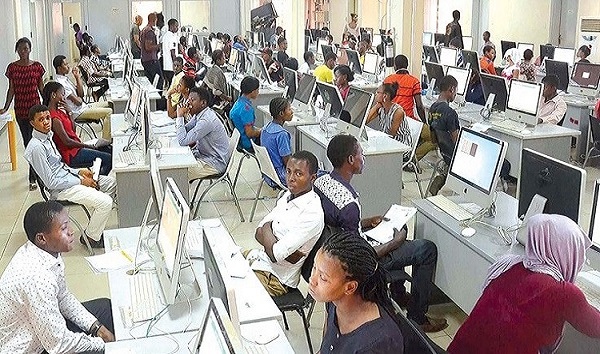The Joint Admissions and Matriculation Board (JAMB) says 557,626 candidates from 1.8 million applications have been admitted into tertiary institutions across the country in its 2022 admission processes.
The JAMB Registrar, Prof. Ishaq Oloyede, said this at the 2023 policy meeting on admissions to tertiary institutions in Abuja on Saturday, June 24.
Oloyede said the 2022 admission process is still ongoing due to opportunities given to some key players in the sector to conduct admissions.
The JAMB Registrar, who discredited notions from the public that admissions were given by JAMB, said admission depended on the availability of candidates five 0’level requirements as UTME was only meant for admission ranking.
“As of June 19, tertiary institutions have admitted 557,626 candidates but as we speak today, the admission is up to 600,000 as we target about 700,000. This is because admission is still ongoing.
READ ALSO: JAMB may allow candidates write UTME with phones, personal device
“We hear about cut-off marks by JAMB but the truth is that not the best candidate who scored the highest mark in UTME is the best candidate.
“Admission is based on the five 0’level results that a candidate possesses because we only make use of UTME for admission ranking. JAMB has not initiated admissions since 2016.”
Speaking on gaps in admission vacancies and why candidates were not admitted, Oloyede said rigidity of programme choice and mismatch of demand and supply were responsible.
He also listed lack of interest in existing vacancies and trail-candidates (No 0’level results or awaiting results) as responsible for admission gaps in the tertiary institutions.
The JAMB boss, therefore, said the onus lay with institutions to determine the National Minimum Tolerable UTME score, popularly called the ‘cut-off marks’.
Speaking at the event, the Permanent Secretary, Federal Ministry of Education, David Adejo, urged the stakeholders to ensure fairness, transparency, and accountability in the admission processes which determined the fate of millions of students.
Adejo called on admission stakeholders to ensure credibility in the process so that no candidate would be denied admission, as well as no deserving candidate, was given admission.
The policy meeting had in attendance representatives from the National Association of Nigerian Students (NANS), Vice-Chancellors of universities, and Rectors of polytechnics.
Others were Provosts of Colleges of Education, Registrars and Admission Officers of tertiary institutions, heads of federal agencies, the National Youth Service Corps (NYSC), and the National Commission for Colleges of Education (NCCE).










